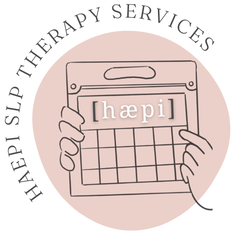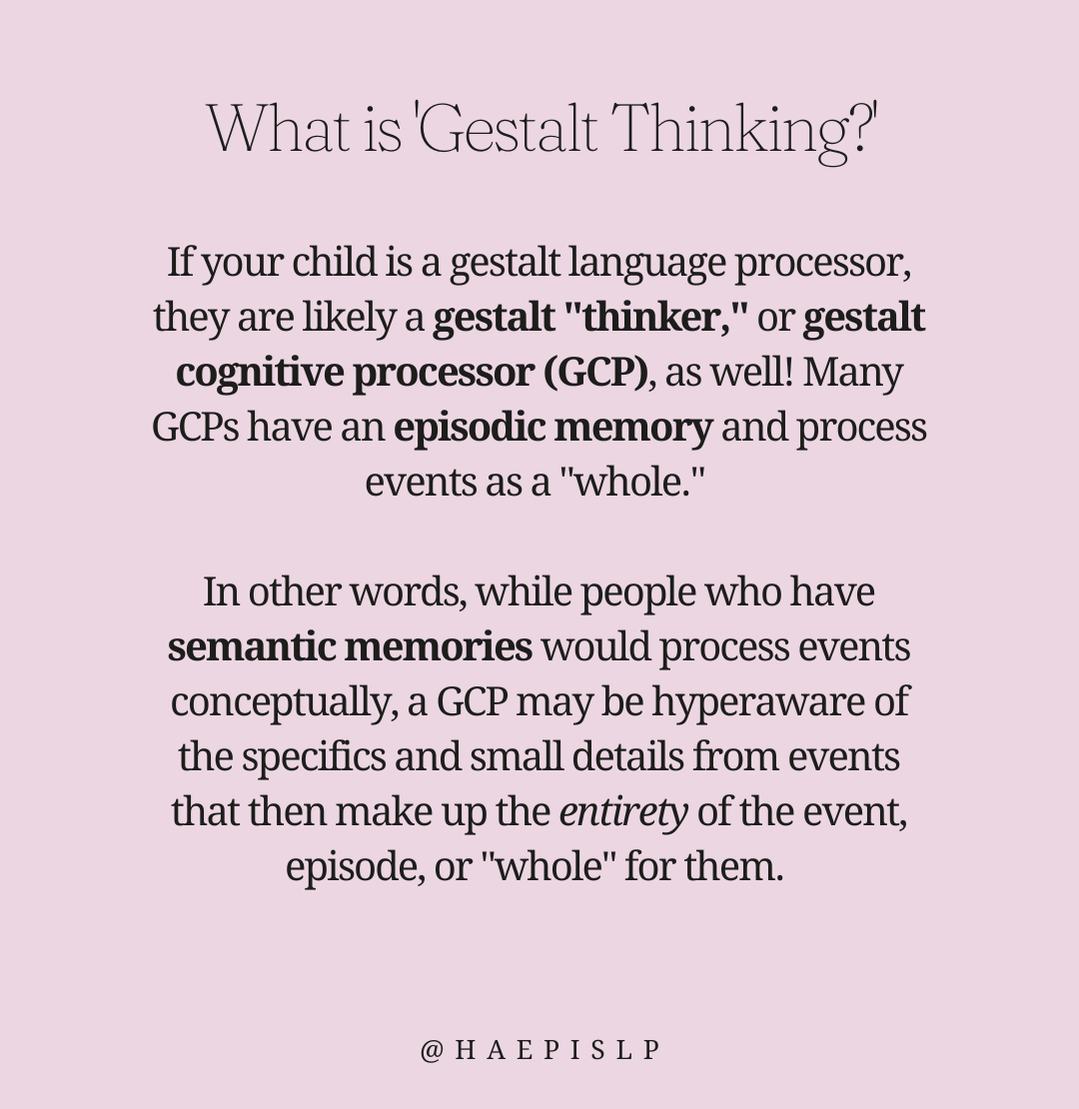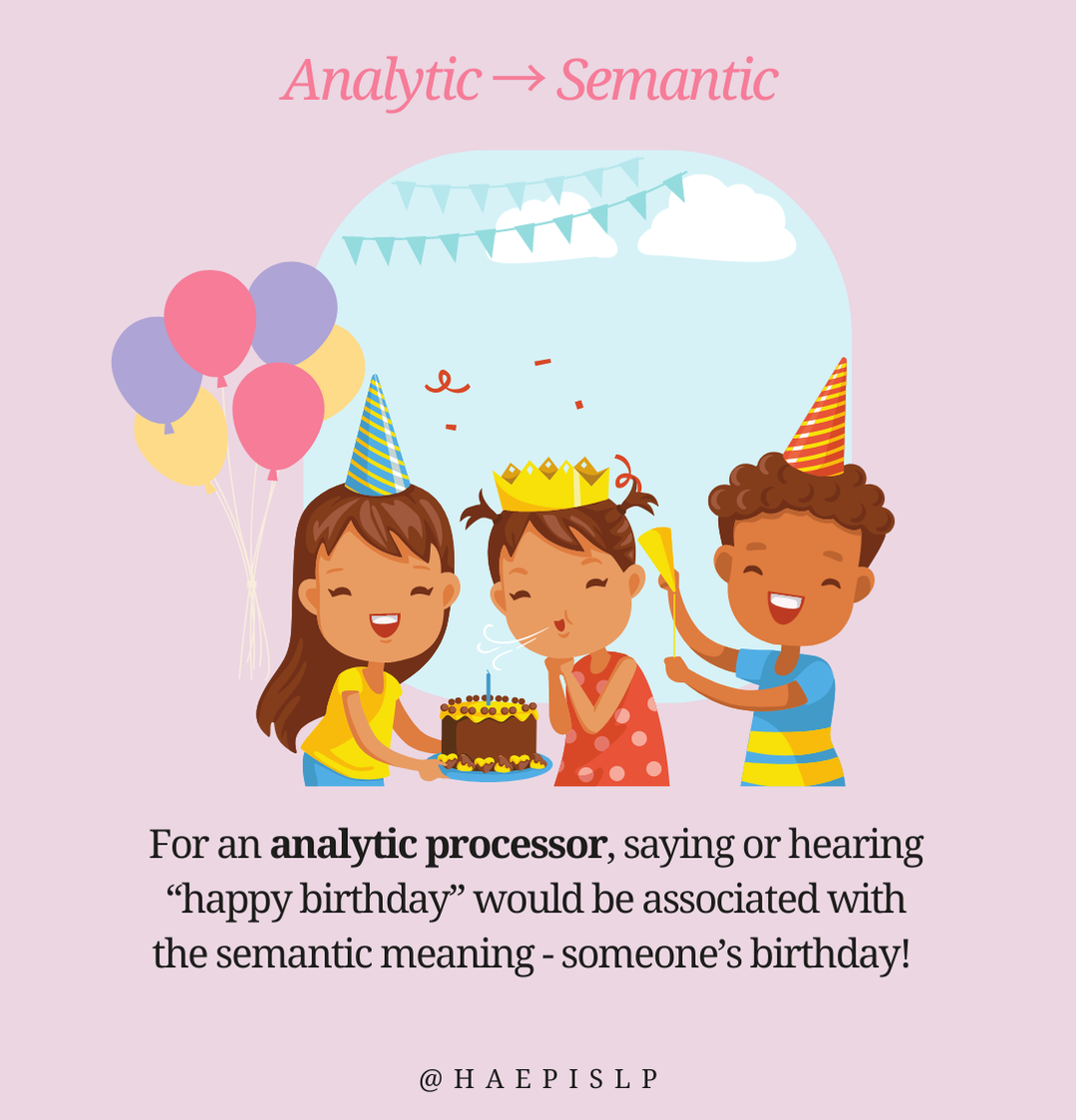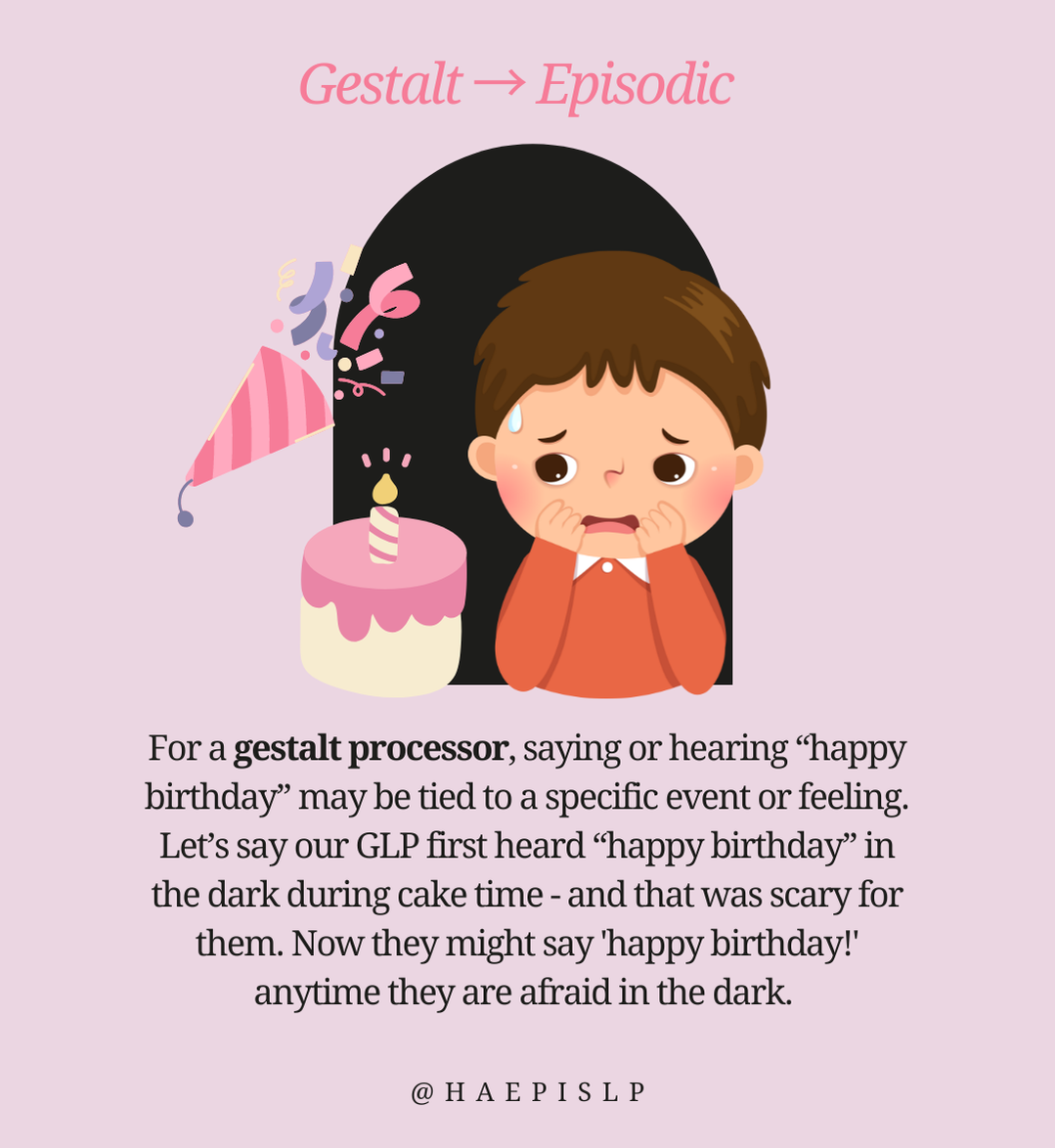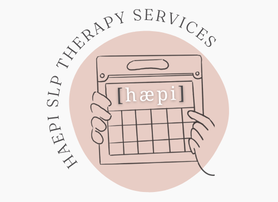|
In order to really understand gestalt language processing, we need to understand gestalt cognitive processing. Most kids who process the world this way have episodic memories. Identifying this is key to understanding how their language is formed. Keep reading to see the difference between these in my birthday example. For analytic language processors, who process things by semantic meaning, they will probably associate the words "happy birthday" with the semantic meaning - what you say when it's someone's birthday. But the phrase "happy birthday" could mean a number of different things to a gestalt language processor. In this case, I suggest that maybe a child hears "happy birthday" for the first time or the first *meaningful* time when it's loud and it's dark - and they are scared! So maybe, every time it's dark and they feel scared they say "happy birthday!", because that's how that phrase is stored in their episodic memory. For another GLP, maybe they were excited the first time they heard "happy birthday" and now that's something they say when they feel excited. Some GLPs may never pick up "happy birthday" as a gestalt. Our GLPs require more detective work with their episodic memories, but it is worth it! by Halle Demchuk, SLPPaediatric SLP | GLP-Trained Clinician | Owner of HAEPI SLP |
The HAEPI BlogCheck here for HAEPI updates, helpful SLP information, free resources, articles, and more!
Archives
June 2024
Categories
All
|
Empowering Happy Communicators |
get in touch |
Quick Links |
© HAEPI SLP THERAPY SERVICES.
HAEPI SLP Therapy Services is proudly neurodiverse, Indigenous-owned, and woman-operated.
We acknowledge that the City of Thunder Bay has been built on the traditional territory of Fort William First Nation, signatory to the Robinson Superior Treaty of 1850. We also recognize the contributions made to our community by the Métis people. We strive as guests on these lands to honour our responsibilities to care for this land and uphold the Treaties that were signed therein.
